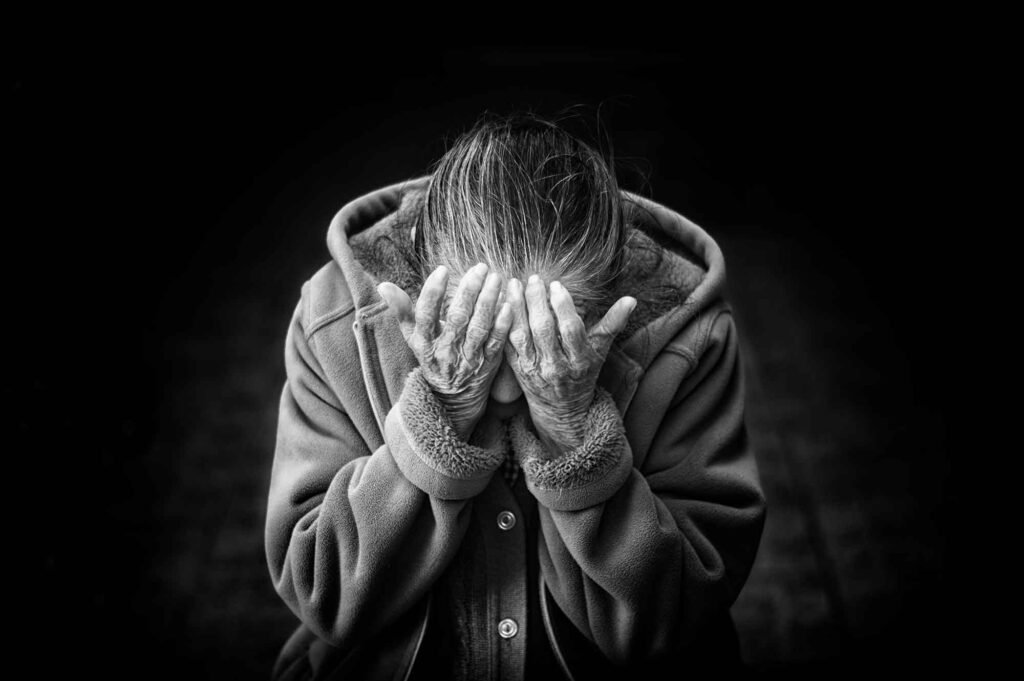Grief is a deeply personal and complex journey that affects everyone differently. Whether you’ve lost a loved one, experienced a major life change, or are coping with a significant loss, the grieving process can feel overwhelming. Understanding the stages of grief and learning how to navigate them can help you heal at your own pace. In this article, we’ll explore the different phases of grieving and offer guidance on how to best support yourself through the process.
The 5 Stages of Grief
Grief is often described using the Kübler-Ross model, which outlines five key stages. While not everyone experiences them in the same order (or at all), they can help provide insight into the emotional journey of loss.
1. Denial
Denial is often the first reaction to loss. It acts as a defense mechanism, helping to numb the overwhelming pain. You may find yourself thinking, “This isn’t happening” or feeling emotionally detached. This is a natural way for your mind to process the shock gradually.
How to cope: Allow yourself time to absorb what has happened. Journaling or talking to a trusted friend can help make the situation feel more real and manageable.
2. Anger
As reality sets in, emotions may turn to anger. You might feel frustrated with yourself, others, or even the situation itself. Anger is a valid and normal response to grief, stemming from deep pain and loss.
How to cope: Express your feelings in a healthy way—through exercise, creative outlets, or speaking with a counselor. Recognizing that anger is a natural part of grieving can help you process it without guilt.
3. Bargaining
This stage involves a lot of “what if” and “if only” thoughts. It’s common to wish you could change the past or negotiate a different outcome. Bargaining often comes with feelings of guilt or regret.
How to cope: Practice self-compassion. Understand that no amount of “what if” thinking can change the past, but you can learn to accept and grow from the experience.
4. Depression
A deep sense of sadness or emptiness may take over as the reality of loss fully sinks in. This is often the longest and most challenging stage, where grief feels heaviest.
How to cope: Allow yourself to grieve without pressure to “move on” quickly. Seeking support from friends, family, or a therapist can be incredibly beneficial.
5. Acceptance
Acceptance doesn’t mean forgetting or being “okay” with the loss. Instead, it means acknowledging what has happened and finding ways to live with it. Over time, the pain lessens, and you begin to adjust to life without what (or who) you lost.
How to cope: Focus on small steps forward. Establish new routines, honor memories in meaningful ways, and give yourself permission to feel moments of joy again.

How to Best Navigate Grief
While grief is unique for everyone, here are some ways to support yourself through the process:
1. Allow Yourself to Feel
Suppressing grief can prolong the healing process. Give yourself permission to experience sadness, anger, or even moments of relief – it’s all part of healing.
2. Seek Support or Grief Counceling
You don’t have to grieve alone. Reach out to trusted friends, join a support group, or consider speaking with a therapist specialising in grief counseling.
3. Take Care of Your Physical Health
Grief can take a toll on your body. Try to maintain a routine with adequate sleep, nutrition, and gentle movement like walking or yoga.
4. Honor Your Loss
Find meaningful ways to remember what you’ve lost. This could be through writing, creating art, holding a small ceremony, or continuing a tradition in their memory.
5. Be Patient with Yourself
Healing from grief isn’t linear, and there’s no “right” timeline. Allow yourself to move through the process at your own pace without comparison. Remember there is no deadline to healing, so do not pressure yourself and take baby steps.
Final Thoughts on Grieving
It’s important to remember that grief is a journey that unfolds differently for each person. While the pain may never fully disappear, learning to navigate the stages of grief can help you find peace and acceptance over time. Be kind to yourself, seek support when needed, and remember that healing is possible—even after deep loss.
If you’re struggling with grief, know that you are not alone. Reach out, talk about it, and take the time you need to heal. Our comment section and our contact form are also always open if you need a listening ear.
Disclaimer: The Dear Stranger team is not composed of mental health professionals. The content, advice, and tips shared in our blog are based on research and are intended to provide a supportive space with information that may be helpful. For professional guidance, we encourage you to consult a qualified therapist, doctor, or mental health specialist. You are not alone—support is available. 💙



